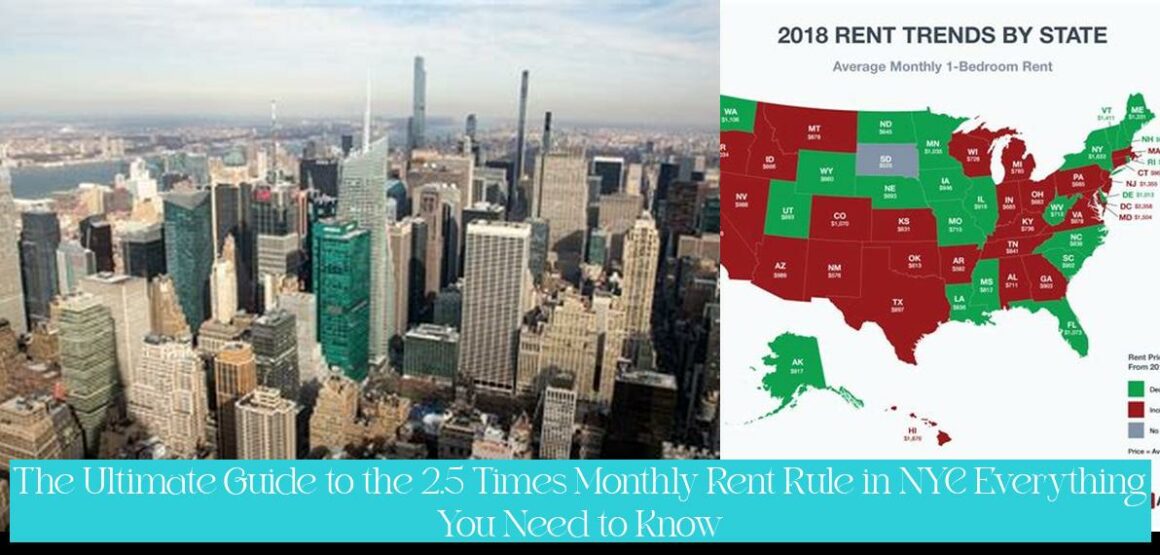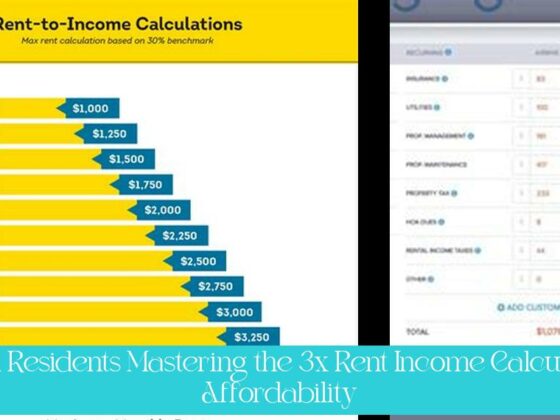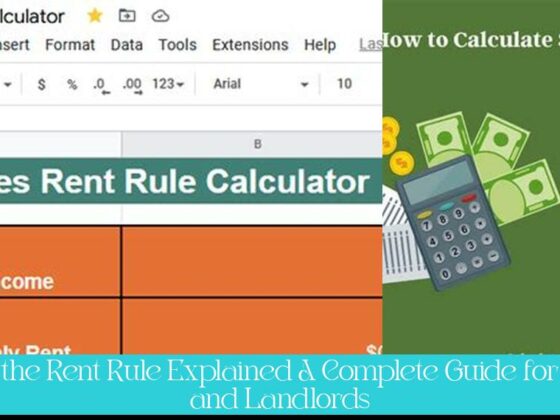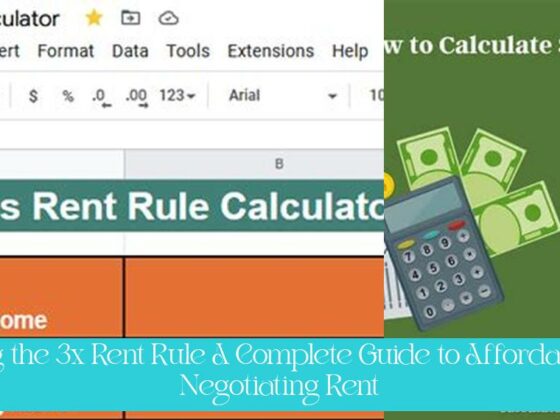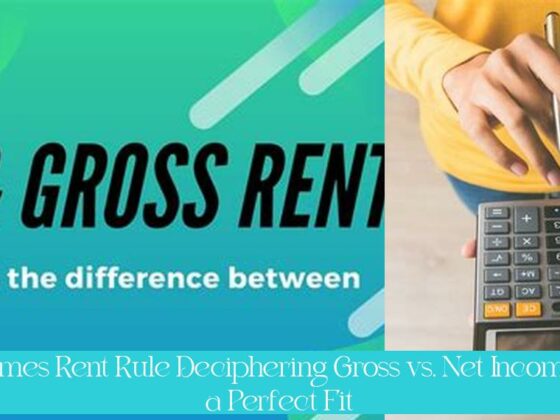Unlocking the secrets to renting in NYC can feel like cracking a secret code. One of the most puzzling rules is the 2.5 Times Monthly Rent Rule. But fear not! This comprehensive guide will demystify the 2.5x rent rule, explore exceptions, and offer clever alternatives to meet the income requirement. So, buckle up and get ready to navigate the NYC rental landscape like a pro!
Key Takeaways
— Mastering the 2.5 Times Rent Calculator: Your Ultimate Guide to Affordability
- The 2.5x rent rule means that a tenant should be earning at least 2.5 times the monthly rent in gross income.
- In NYC, landlords typically want to see an annual income of at least 40 times the monthly rent.
- To get around the 3 times the rent income requirement, options include putting up a higher security deposit, finding a smaller or private landlord, finding a guarantor, or getting roommates.
- Some apartments may lower their income requirement to 2.5 times the monthly rent.
- When renting, it’s important to calculate whether you meet the income requirement, and if not, consider alternative options such as finding a guarantor or roommates.
- Landlords in NYC and elsewhere may have different income requirements, so it’s important to understand the specific rules in the area where you are looking to rent.
The 2.5 Times Monthly Rent Rule in NYC: A Comprehensive Guide
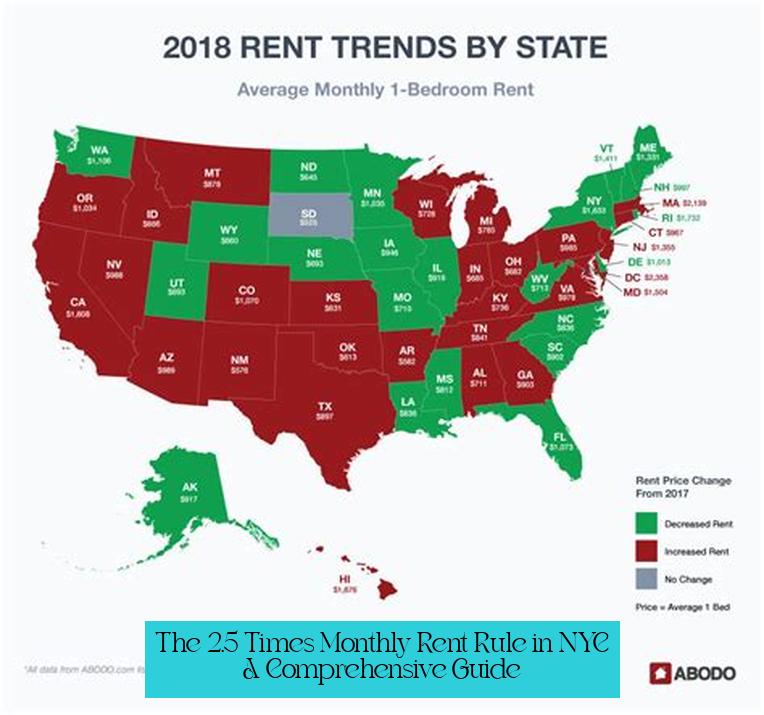
Navigating the competitive rental market in New York City can be a daunting task, especially when it comes to meeting the income requirements set by landlords. One of the most common requirements is the 2.5 times monthly rent rule, which states that a tenant’s gross income should be at least 2.5 times the monthly rent amount.
Understanding the 2.5 Times Rent Rule
The 2.5 times rent rule is a general guideline used by landlords to assess a tenant’s ability to afford rent. It assumes that a tenant should spend no more than 25% of their gross income on housing expenses, including rent and utilities. For example, if the monthly rent is $1,000, the tenant should have a gross income of at least $2,500.
More updates: Mastering the 2.5 Times Monthly Rent Rule: A Renter’s Essential Guide
Exceptions to the Rule

While the 2.5 times rent rule is widely accepted in NYC, there may be some exceptions in certain situations. Some landlords may lower their income requirement to 2.5 times the monthly rent in the following cases:
More updates: Mastering the 2.5 Times Monthly Rent Rule: Your Guide to Meeting and Exceeding It
- Smaller or private landlords: Smaller landlords and private landlords may be more flexible with their income requirements, especially if they know the tenant personally or have positive references.
- Higher security deposit: Tenants may be able to negotiate a higher security deposit to make up for a lower income.
- Guarantor: A guarantor is a third party who agrees to pay the rent if the tenant defaults. Having a guarantor can increase a tenant’s chances of getting approved for a lease, even if their income is slightly below the 2.5 times rent requirement.
Alternatives to Meeting the Income Requirement
If a tenant does not meet the 2.5 times rent income requirement, there are several alternative options they can consider:
- Roommates: Sharing an apartment with roommates can significantly reduce the monthly rent burden and make it easier to meet the income requirement.
- Private landlord: Private landlords are often more flexible with their income requirements than large property management companies.
- Negotiate: Tenants may be able to negotiate with the landlord to lower the rent amount or find other ways to make up for a lower income, such as providing a higher security deposit or a personal guarantee.
Conclusion
The 2.5 times monthly rent rule is an important factor to consider when renting an apartment in NYC. By understanding the rule, its exceptions, and the available alternatives, tenants can increase their chances of finding an affordable and suitable rental property. It’s always advisable to calculate your gross income and compare it to the rental amount before applying for an apartment to avoid any surprises or disappointments.
1. How do I calculate 2.5 times my rent?
To calculate 2.5 times your rent, simply multiply the monthly rent amount by 2.5. For example, if the monthly rent is $1,000, you should multiply it by 2.5, resulting in a required gross income of at least $2,500 per month.
2. Do you have to make 3 times the rent in New York?
In New York City, landlords typically want to see an annual income of at least 40 times the monthly rent, not necessarily 3 times the monthly rent. This is a common income requirement in NYC to ensure tenants can afford the rent and other living expenses.
3. How do I get around 3 times the rent?
To get around the 3 times the rent income requirement, options include negotiating a higher security deposit, finding a smaller or private landlord who may be more flexible with income requirements, securing a guarantor, or considering the option of having roommates to reduce the monthly rent burden.
4. What are the alternatives to meeting the income requirement?
If a tenant does not meet the 2.5 times rent income requirement, alternatives include finding roommates to share the rent burden, seeking a private landlord who may have more flexible income requirements, or considering the option of having a guarantor to increase the chances of lease approval.
5. What is the 2.5 times rent rule in NYC?
The 2.5 times rent rule in NYC means that a tenant’s gross income should be at least 2.5 times the monthly rent amount. This rule is used by landlords to assess a tenant’s ability to afford rent and is based on the assumption that a tenant should spend no more than 25% of their gross income on housing expenses.
6. Are there exceptions to the 2.5 times rent rule in NYC?
While the 2.5 times rent rule is widely accepted in NYC, there may be exceptions in certain situations. Some landlords may lower their income requirement to 2.5 times the monthly rent for tenants with smaller or private landlords, those willing to negotiate a higher security deposit, or those who have a guarantor to vouch for their ability to pay rent.
